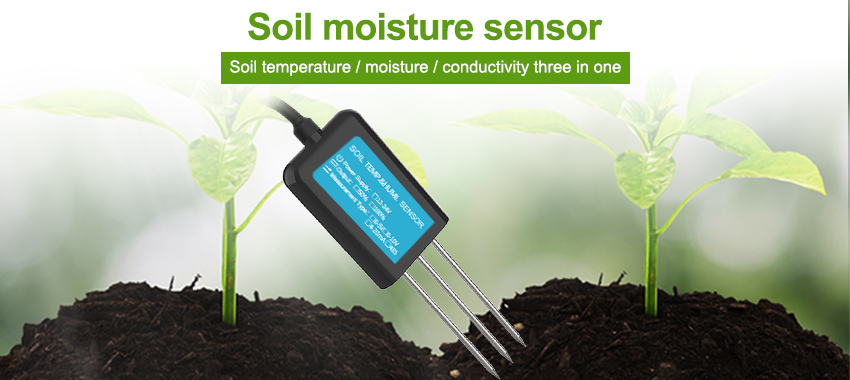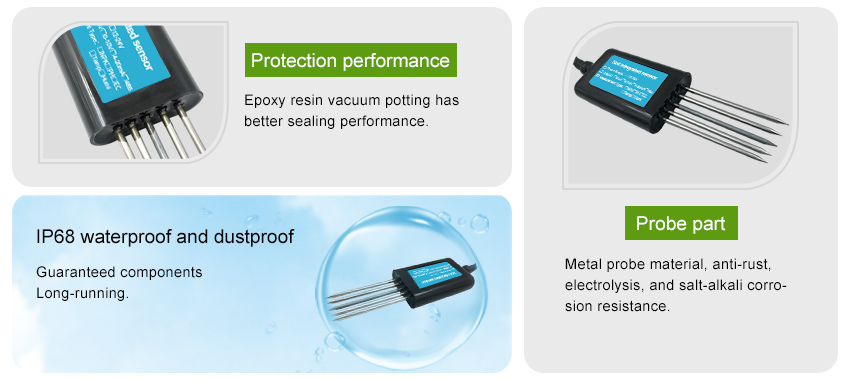Quality Soil Moisture Sensor

Quality soil moisture sensor plays an important role in plant growth and development. The amount of water in the soil determines whether plants have enough water to support their growth and productivity. Monitoring soil moisture is therefore critical for farmers and growers who want to optimize crop yields and ensure efficient use of water resources.
To achieve this, farmers and growers need to invest in quality soil moisture sensors that can accurately measure soil moisture levels. In this article, we’ll discuss the benefits of using a quality soil moisture sensor for agriculture.
Enhance Crop Growth and Yield
Plants require a consistent and adequate supply of water to grow and produce. By measuring soil moisture levels accurately, growers can irrigate their crops effectively and ensure that the root zone receives enough water. This, in turn, promotes healthy plant growth and increases crop yield. Without an accurate way to measure soil moisture levels, growers may overwater or underwater their crops, leading to suboptimal growth and reduced yields.

Optimize Water Use
Water is a finite resource, and farmers must use it responsibly. By investing in quality soil moisture sensors, farmers can monitor soil moisture levels in real-time and make informed decisions about when and how much to irrigate their crops. This can help them optimize water use and conserve this precious resource.
Save Time and Labor Costs
Traditional methods of measuring soil moisture, such as manual sampling or visual observation, can be time-consuming and labor-intensive. Quality soil moisture sensors automate this process, making it quicker and more efficient to collect data. As a result, farmers can save time and reduce labor costs, freeing up time and resources for other critical tasks.
Reduce Risk of Plant Stress and Disease
Overwatering or underwatering crops can lead to plant stress and make plants more susceptible to diseases. Quality soil moisture sensors help growers avoid these risks by providing accurate readings of soil moisture levels. This data can help growers adjust their irrigation schedules and volumes to ensure the right level of moisture for healthy plant growth and reduce the risk of plant disease.
Environmental Benefits
Efficient use of water resources can have significant environmental benefits. By investing in quality soil moisture sensors, farmers can reduce water consumption, which can help to conserve water resources and reduce the carbon footprint of farming operations. As such, investing in quality soil moisture sensors is not only beneficial for crop yields but also has positive long-term impacts on the environment.
In conclusion, quality soil moisture sensors are essential tools for modern agriculture. They provide accurate and reliable data on soil moisture levels, helping farmers to optimize crop growth, save time and labor costs, reduce the risk of plant stress and disease, and conserve water resources. Investing in a quality soil moisture sensor is a smart decision for any farmer or grower looking to improve their crop yields and sustainability.